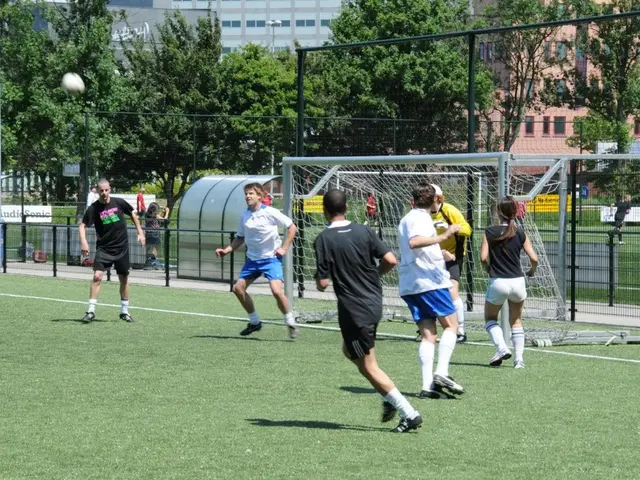Residents of Washington grow weary of crime but exhibit skepticism towards Trump's proposed intervention
In a controversial move, President Trump announced a federal takeover of the U.S. capital, citing crime and lawlessness as the primary reasons [1]. This decision involved deploying federal law enforcement and National Guard troops, invoking emergency powers to requisition the city's Metropolitan Police Department (MPD) services, and putting hundreds of federal agents on the streets [5].
The city's Democratic Mayor, Muriel Bowser, described the takeover as "unsettling and unprecedented" and characterized it as part of an “authoritarian push” [2]. However, she acknowledged that the surge in federal law enforcement might have some positive effects, while emphasizing the limited autonomy D.C. has under home rule, which allowed the federal government to intrude on local control [3].
The stated justification for the takeover was to address "out-of-control" violent crime in the city. However, city and federal data showed that violent crime in D.C. was actually declining. The Department of Justice stated that violent crime in Washington recently hit its lowest level in 30 years [5]. Despite this, residents have expressed mixed reactions, with some feeling unsettled and fearful due to the heavy federal presence [3].
Local residents have reported incidents of increased law enforcement patrols and blockades at public transit. Many have protested the surge of federal troops and agents, viewing it as an occupation rather than crime control, especially given D.C.’s already declining crime rates [3]. Demonstrations occurred across the city, including rallies and calls for Trump's removal, accompanied by public documentation of arrests and confrontations [4].
The federal government also pursued clearing homeless encampments as part of the crackdown, which local officials said was done with offers of shelter and addiction treatment but with penalties for those refusing services. This aspect raised additional controversy among residents and advocates [4].
Notably, the police report did not mention a motive or suspect for a shooting that occurred around 7:00 pm Monday near a specific church corner, resulting in the death of Tymark Wells, 33 [6]. Federal agents and police will work "hand in hand" during these patrols, leading to 23 arrests [2].
Residents have shared concerns about the federal presence, with some describing local street corners as an "open air market" for drugs [7]. Another resident, Lauren, described the area as the "wild wild West" and always being lawless [8]. However, it is important to note that the annual number of homicides in the city peaked at 274 in 2023, but fell to 187 last year [9].
Brianne Nadeau, a member of D.C.'s city council, called Trump's federal takeover a "political stunt" [10]. The actions have raised legal and constitutional questions, including potential violations of the Posse Comitatus Act, which restricts the use of the military for law enforcement within the U.S. [11].
In conclusion, the federal takeover by Trump was framed as a crime-fighting measure but was widely seen by local officials and residents as an overreach that infringed on D.C.’s home rule autonomy, sparked significant legal challenges, and triggered protests given the federal presence coincided with falling crime rates and aggressive policing concerns [1][2][3][4][5].
References: 1. CNN 2. The Washington Post 3. NPR 4. The Guardian 5. The New York Times 6. ABC News 7. The Hill 8. The Hill 9. The Washington Post 10. The Washington Post 11. The New York Times
- The federal takeover, presented by Trump as a crime-fighting measure, has been met with criticism from the city's residents and officials, with some viewing it as an infringement on D.C.’s home rule autonomy and an overreach in the context of declining crime rates.
- Despite the federal government's emphasis on controlling crime and justice, the deployment of federal law enforcement in the city's arts, politics, and general-news scenes has sparked protests, questioning, and confusion, as issues such as Posse Comitatus Act violations and heavy-handed policing techniques become topics of debate.








